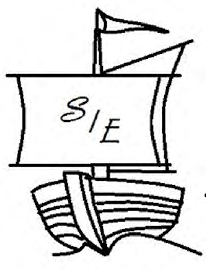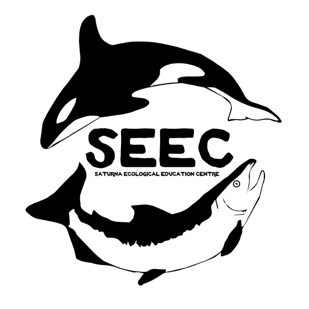Code of Conduct
| Saturna Island Elementary School
Saturna Ecological Education Center |
|
Saturna School Code of Conduct 2024-2025
Statement of Purpose
At Saturna School, our focus is on learning. We are dedicated to creating a safe and caring environment that promotes purposeful learning for all. The Code of Conduct outlines our expectations and shall apply to all students while at the school and/or school related activities, or enroute. Any concerning behavior or actions shall be considered a breach of the Code of Conduct, warranting appropriate forms of intervention.
Communication
We believe that the Code of Conduct (and its implementation) is one of the cornerstones of a school-wide program developing social responsibility in students. The Code of Conduct will be clearly communicated to students, staff and the parent community in the following ways:
Staff will use class time to discuss and implement the behavioural expectations outlined in the school’s Code of Conduct.
The modeling of socially responsible behaviour is expected of all adults in the school, both employees and volunteers.
Paper copies of the document for various grade levels will be sent home in September to each family.
In addition, The Code of Conduct will be posted on the school website.
Monitoring and Review
The Code of Conduct is reviewed annually by staff and the Parent Advisory Council. Revisions are made accordingly. Office referrals are reviewed by the Principal and School-Based Team; and monitored as appropriate.
Alignment
The Saturna Code of Conduct is aligned with District policies, administrative procedures and the BC Human Rights Code. As per Section 8 of Human Rights Code of British Columbia, students shall not discriminate against others on the basis of the race, religion, colour, ancestry, place of origin, marital status, family status, age, sex, sexual orientation, gender identity or expression, or physical or mental disability. Furthermore, as per Section 7 of the Human Rights Code of British Columbia, no student shall publish or display anything that would indicate an intention to discriminate against another, or expose them to contempt or ridicule, on the aforementioned bases.
The three main tenets of Saturna School are:
Be Safe
Be Kind
Be Respectful
Acceptable Behavior
Members of the Saturna School community are expected to conduct themselves in a safe, kind and respectful manner. This includes, but is not limited to the following:
Be Safe Learn and follow the school rules |
Some examples include: -Move safely -Respect personal space, try to ask before touching or hugging -Report dangerous situations to staff
|
Be Kind Have a positive effect and influence on the people and the environment. |
Some examples include: -Say kind and positive things -Act kindly and help others -Try to fix problems and ask for help if you need it
|
Be Respectful Respect yourself, others and the environment. |
Respect Yourself - Be kind to yourself and challenge yourself. Some examples include: -Aim for your personal best -Nurture a growth mindset (No put-downs of self or others) -Be on-time, organized and ready to listen and learn
Respect Others - Be considerate of others' personal feelings and properties. Some examples include: -Be polite -Use whole body listening -Be honest -Respect other's property
Respect the Environment - Be a steward of the classroom, school, school grounds, island, and environment beyond. Some examples include: -Clean up after yourself -Reuse, recycle, compost, or use the garbage -Take good care of materials and limit your use of resources -Ask before borrowing -Do your part - participate in leadership -Be a caretaker |
Technology Use
At Saturna School, we believe that children need to be active and play with each other. To promote online safety and focused learning environments, the use of personal digital devices at school is restricted during hours of instruction. The use of personal digital devices is not permitted except in special circumstances for accessibility and accommodation needs, medical and health needs or equity to support learning outcomes. (See )
SEEC students (Grades 10-12) may have access to personal devices to communicate with families in times of need. These times will be arranged with the SEEC Principal, Vice Principal, or the Evening Supervisor. Personal devices may be used as learning tools at the teacher’s discretion. Personal devices may NOT be used for any other purposes during the SEEC experience (this includes instructional and non-instructional time).
Rising Expectations
The Code of Conduct recognizes that as children grow and mature, they are more able to make appropriate decisions and to be responsible for their actions. As students’ progress through school, they are expected to:
- increase their personal responsibility and self-management
increase consequences for unacceptable conduct
Unacceptable Behavior
Unacceptable behavior can consist of, but is not limited to:
interference with the learning of others
use of inappropriate language, swear words, or abusive language
excluding others
fighting (or play fighting)
aggressive behavior toward others (verbal or physical)
lack of respect for others, teasing
throwing objects (rocks, stick, snowballs, etc.)
disregard for others' personal space
unauthorized leaving of the school grounds
intentional littering
disrespecting school facilities and equipment
disrespecting the land and wildlife
Consequences
Consequences will be applied in a fair and consistent manner, respecting individual rights, responsibilities, age, and maturity. Wherever possible, disciplinary action is preventative and restorative rather than punitive. Special considerations may apply to students with special needs if these students are unable to comply with the Code of Conduct due to having a disability of an intellectual, physical, sensory, emotional, or behavioral nature.
Examples of potential consequences:
review of expectations and quiet “think time”
a “do over” opportunity
group or classroom circles to restore equity, balance and respect
an act of service to make a positive contribution to the class, school or community
school/community support to learn and practise problem solving or conflict resolution strategies
reflective/think process that includes the opportunity to create a plan to restore the harm done
review of expectations, written assignment and/or loss of privileges
meeting with parents
short-term, in-school suspension
long-term, in-school (or out of school) suspension or referral to/support from alternative programs. Consultation with the police and/or fire department
Notification
In accordance with School District Policy and the Criminal Code, the more serious incidents will be referred to the parents, other staff members on a need to know basis, and may be referred to the School District Superintendent or the School Liaison Officer (RCMP.)
Concerns
If parents, caregivers, or students have any concerns, they are encouraged to contact the classroom teacher directly, or the principal, as soon as possible.
In the event of unacceptable conduct, the following sequence of events will generally occur:
The teacher will address the concern with the student.
The teacher informs the parent/caregiver when behaviour concerns become frequent or escalates.
Incidents occurring on the playground will be reported to the classroom teacher.
More serious incidents of misconduct are referred to the Principal.
Confidentiality
All student complaints about another student or adult will be treated with confidentiality. The principal will ensure that the student is protected against retaliation from other students.
Retaliation Prevention
No student, school employee, parent or volunteer may engage in reprisal or retaliation against a victim, witness, or other person who brings forward information about an act of harassment, intimidation, bullying, prejudice or discrimination. Reprisal or retaliation is prohibited and will result, where appropriate, in discipline and/or in the filing of a complaint with other appropriate authorities.
Saturna School Code of Conduct has been structured to align with and adhere to the standards outlined in:
Gulf Island School District Bylaws and Policies: Inclusive and Respectful Environments; Sexual Identity, Gender Diversity, and Gender Expression; and Anti-Racism
The School Act 85 (1.1), 168 (2) (s.1) Provincial Standards Ministerial Order 276/07, effective Oct 17, 2007
BC Ministry of Education: Safe, Caring and Orderly Schools A Guide (Nov 2008) and Developing and Reviewing Codes of Conduct: A Companion (Aug 2007) both found at www.bced.gov.bc.ca/sco/



